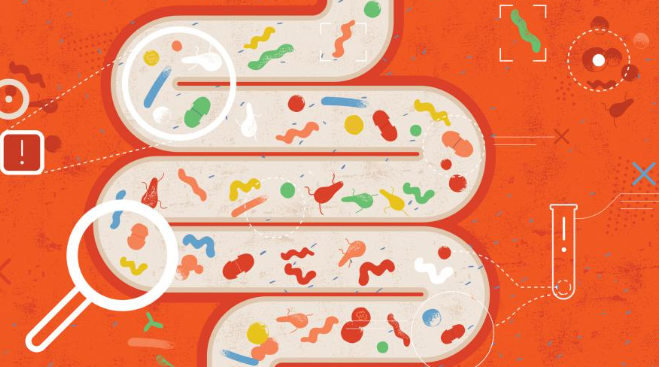Human Gut Bacteria Aid in Plant Cellulose Digestion
A recent study published in the journal Science has shed light on previously undescribed human gut bacteria that play a crucial role in the digestion of plant cellulose. These bacteria, which are abundant in ancient and hunter-gatherer microbiomes but scarce in urban societies, have been linked to the growing consumption of processed food in industrialized countries.
Discovery of New Cellulose-Digesting Bacteria
The study discovered three new species of cellulose-digesting bacteria in the human gut, namely Candidatus Ruminococcus primaciens, Ruminococcus hominiciens, and Ruminococcus ruminiciens. These bacteria were found to be prevalent among rural populations, great apes, ancient human societies, and hunter-gatherer communities.
The Importance of Cellulose Digestion
Cellulose is the main component of plant fiber and a common element in diets that include plant-based material. Humans rely on the gut microbiome to digest cellulose, which is beneficial to gut microbiome stability. The newly discovered bacteria convert these indigestible compounds into short-chain fatty acids, supplying energy to the host.
Decline of Cellulose-Degrading Bacteria in Industrialized Countries
The study found that the prevalence of cellulose-degrading bacteria varies significantly between industrialized and non-industrialized countries. In industrialized countries like Denmark, China, Sweden, and the United States, the collective prevalence was found to be only 4.6%, while it was much higher in ancient human societies (43%), hunter-gatherers (21%), and geographically diverse rural societies (20%).
The researchers attribute this decline to the growing consumption of processed food in industrialized nations, which lacks plant fiber. Modern industrialized diets are dominated by processed foods, leading to a decrease in dietary fiber intake compared to hunter-gatherers and rural populations.
Adaptation of Bacteria to Host Lifestyle and Diet
The study also found that the cellulose-degrading bacteria adapt to the host’s lifestyle and diet. For example, the human microbe Ruminococcus hominiciens was found to primarily reside in the guts of humans and great apes, likely originating in the ruminant gut and then colonizing humans possibly during domestication.
Furthermore, the human microbes were found to digest monocots such as maize, rice, and wheat, which are major components of the human diet, while non-human primate strains could degrade chitin, a polymer abundant in insects.
Implications for Human Health
The decline of cellulose-degrading bacteria in the human gut potentially impacts energy balance and other health-related aspects. Dietary fiber is essential for maintaining a stable gut microbiome, and its absence in modern industrialized diets may have negative consequences for human health.
The study highlights the importance of a plant-based diet rich in dietary fiber for the maintenance of a healthy gut microbiome. The findings also suggest that the loss of these beneficial bacteria may be a contributing factor to the increasing prevalence of certain health issues in industrialized societies.
Future Research Directions
The discovery of new cellulose-degrading bacteria in the human gut opens up new avenues for research into the role of the gut microbiome in human health. Further studies are needed to understand the mechanisms by which these bacteria contribute to cellulose digestion and the potential health benefits of maintaining a diverse and abundant population of these microbes in the gut.
Additionally, the study highlights the need for further research into the impact of processed food consumption on the gut microbiome and the development of strategies to promote the growth and maintenance of beneficial gut bacteria.
Month: Current Affairs - March, 2024
Category: Science & Technology Current Affairs








